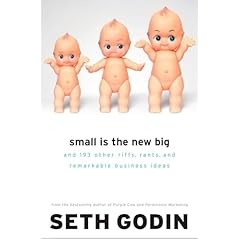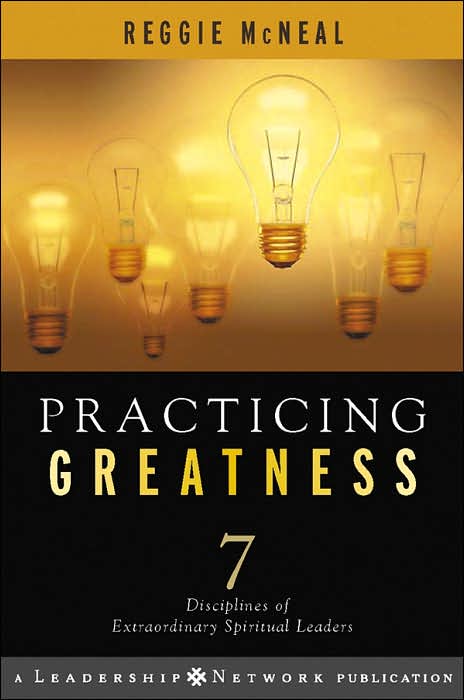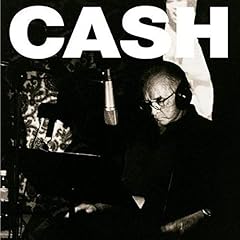My first job was cleaning the grease off the hot-dog roaster at the carousel snack bar, near my home in Buffalo. Actually, it wasn’t a roaster. It was more a series of nails that rotated under a lightbulb. I also had to make the coffee and scrub the place clean every night. it very quickly became obvious to me that I didn’t have much of a future in food service.
I didn’t have to make many decisions in my job. And the manager of the store didn’t exactly look to me to initiate change. In fact, she didn’t want anyone to initiate change. (My suggestion that we branch out into frozen yogurt fell on deaf ears, as did my plea that it would be a lot cheaper to boil hot dogs on demand than to keep them on the rack under the lightbulb all day.)
Any change, any innovation, any risk at all would lead to some sort of terrible outcome for her, she believed.
After I set a record by breaking three coffee carafes in one shift, my food-service career was over. I was out on the street, unemployed at the tender age of 16. But from that first job, I learned a lot — and those lessons keep getting reinforced.
Just about every day, I go to a meeting where I meet my boss from the snack bar. Okay, it’s not really her. But it’s someone just like her: a corporate middle-person who’s desperately trying to reconcile the status quo with a passionate desire to survive. My boss didn’t want to jeopardize her job. She viewed every day and every interaction not as an opportunity but as a threat — a threat not to the company but to her own well-being. If she had a mantra, it was “Don’t blow it.”
In her business, she faced two choices: to die by the guillotine, a horrible but quick death, or to perish slowly on the rack — which is just as painful a way to go, if not more so, and guaranteed to leave you every bit as dead. But in her nightmares, only one of those two options loomed large — the guillotine.
I have to admit it. I have the same dream.
Have you ever spent a night worrying about what your boss (or your stockbroker or a big customer) is going to say to you at that meeting the next morning? Have you ever worried about some impending moment of doom? That’s fear of the guillotine.
But almost no one worries about the rack. We don’t quake in our boots about a layoff that’s going to happen two years from now if we don’t migrate our systems before our competition does. We’re not afraid of stagnating and dying slowly. No, we’re more afraid of sudden death, even though the guillotine is probably a far better way to die.
Recently, at the invitation of the president of a company, I visited its operation in Chicago. This company is a household name, a financial-services giant. And its people know that the Internet represents a huge threat to their future.
When I get there, people are so earnest. They’ve all done their homework. They all take notes and ask questions. At first, it seems as if they’re doing everything right to prepare for the future. They’ve got an Internet task force, and it reports directly to the president. It’s a high-profile gig: Lots of senior people are on this team, and virtually every department in the company has a representative on it.
The team is busy hiring consultants, building prototypes, creating business models, and generally working hard to get the company in shape for the next century.
I give my talk, and team members invite me to sit in on a presentation by the company’s top marketing person. We sit down in a huge conference room, with a fantastic view of the lake, a silver tea set on a sideboard, and custom-printed yellow pads placed in front of everyone.
After the presentation — which sounds all too much like state-of-the-art Internet strategy circa 1996 — they ask me what I think.
I look around, and that’s when I realize that every single person in the room is waiting for me to say the same thing. They want to hear, “Hey, you guys are totally prepared for the Net. Don’t worry about it.” They want to hear, “Hey, this Web thing isn’t a threat to your business model. You don’t need to change a thing.” They want to be told that everything will be fine.
And the really sad and amazing thing is that they don’t care if I’m wrong. The idea that their company could end up like Waldenbooks or CBS or Sears or any other big, dumb company is just fine — as long as they don’t have to change now.
What was going on here? I had just met a group of smart, aggressive, well-compensated people, who control billions of dollars in assets and one of the best brand names in the world. Yet they knew they were going to fail, and they couldn’t do a thing about it. They had all bought into a system in which it’s just fine to fail on the big stuff — as long as little failures don’t happen now.
Let’s be honest.
Nobody likes change.
Real change, earth-shattering change, stay-up-all-night-worrying change isn’t fun. At most companies, it’s a huge threat, an opportunity for failure, a chance to see the stock plummet, to watch divisions get axed, to hear customers scream and yell. We’re organized to resist big change at every turn.
The problem is that today we don’t have a choice. We can’t leave innovation to the small guys, the startups that have nothing to lose. Either we change our businesses, or they die.
Resisting change is natural, sometimes even healthy. In today’s world, though, it can be deadly.
Businesses that don’t change disappear. Winners change; losers don’t.
At the Carousel Snack Bar, I learned three lessons that are just as valid now, 23 years later, as they were then. The first is that you should never take a job that requires you to bring your own grease rag to work. Second, jobs in which you don’t initiate change are never as challenging, fun, or well paid as those in which you do. And third, companies that don’t change vanish.
It’s easy to see those lessons at work on the Net, but change isn’t just about the Internet. When the Internet is old news, companies still will be turning over. Remember DeSoto and Pierce-Arrow and Dusenberg and Packard and American Motors? How about Borland and Spinnaker Software and Ashton-Tate and (almost) Apple? Or A&M Records? Or Orion Pictures?
In the long run, we’re all dead. The same is true for companies, divisions, and brands. Sooner or later, the place where you work is going to disappear. You’re not safe, no matter where you are. Your company is going to fail or be acquired or acquire another company, and you’ll lose your job. Or you’ll lose interest in your job.
One way or another, sooner or later, you’re going to leave. So why not take some risks along the way? Here’s the question: Are you going to be a change agent, or are you going to keep bringing your own grease rag to work?
The biggest gripe that I hear from folks at companies with two or more employees is that someone else in their company is impeding change, that “they” don’t get it, won’t endorse it, won’t allow it to happen. If you’re one of the folks offering up one of those excuses, I’ve got news for you: What you’re looking for isn’t change. What you’re looking for is an official endorsement of the risk-free status quo.
It’s possible to have a great corporate career, to make a difference, to add significant value to your company. But the best way to do that is to instigate and execute change, to risk your job on a nearly constant basis — because every job risk enhances your career.
Imagine that you’re on a boat. It’s a big boat, and it’s got a leak. Actually, it’s got a hole. Belowdecks, your colleagues are busy bailing: They’ve got cans and hoses and even a pump, and they’re bailing water as fast as they can. The optimists in the group are pointing out that no one has drowned yet, and that maybe a giant piece of kelp will come along and get stuck in the hole and plug it up.
Up on the deck, senior management is saying, “Full speed ahead.” Sure, every once in a while a vice president notices that the ship isn’t quite as high in the water as it was. And the rest can’t help noticing that many of the boats around them are sinking. But, frankly, they’ve got a pretty good gig, and all of the alternatives that they can think of involve getting wet.
And there, about 50 feet away, is a brand-new boat, a boat with no leaks, no holes. And nobody’s on it. So here’s the question: Why not go for it?
Big-company CEOs almost never complain to me about employees who take too many risks. They almost never whine about a workforce that’s busy with new initiatives at the expense of the core business. And they don’t complain when people stand up and fight for ideas, standards, and quality that they absolutely believe in. But they almost always talk about people who play it too safe, who avoid risks, and who are dooming their company to mediocrity and, ultimately, death.
What are you going to do? Risk the sharks in the water, get your brand-new Lacoste shirt wet, and go for a swim? Or grab a can and start bailing, even though you know this baby’s going under? What will it be? The guillotine or the rack?
By the way, the last time I visited my parents in Buffalo, I drove by the Carousel Snack Bar. It’s closed — bankrupt, I think. And I bet that spending those last few years on the rack was no fun at all.
Seth Godin (sgodin@fastcompany.com) is the author of “Permission Marketing: Turning Strangers into Friends, and Friends into Customers” (Simon & Schuster, 1999).
In my life I have had the opportunity to work for men and women who were willing to do the hard thing. They traded present security in order to make changes that had the potential to secure the future. Win or lose the organizition was better for it. We worked harder and with greater enthusiasm because we knew that we were standing on the edge of greatness. When we were faced with failure we stood together and quickly rallied with a new idea or perspective to keep us on track. There is no greater feeling.
Conversely, I have worked with my fair share of people who simply try and avoid the guillotine not realizing that they have resigned themselves, their organization, employees, and shareholders to an aggonzing, slow death on the rack of irrelevance.
What about you? Anybody out there want to work for someone that simply avoids the hard stuff?
Not me. I am willing to make the hard changes. I’ll start by making the changes within myself.








